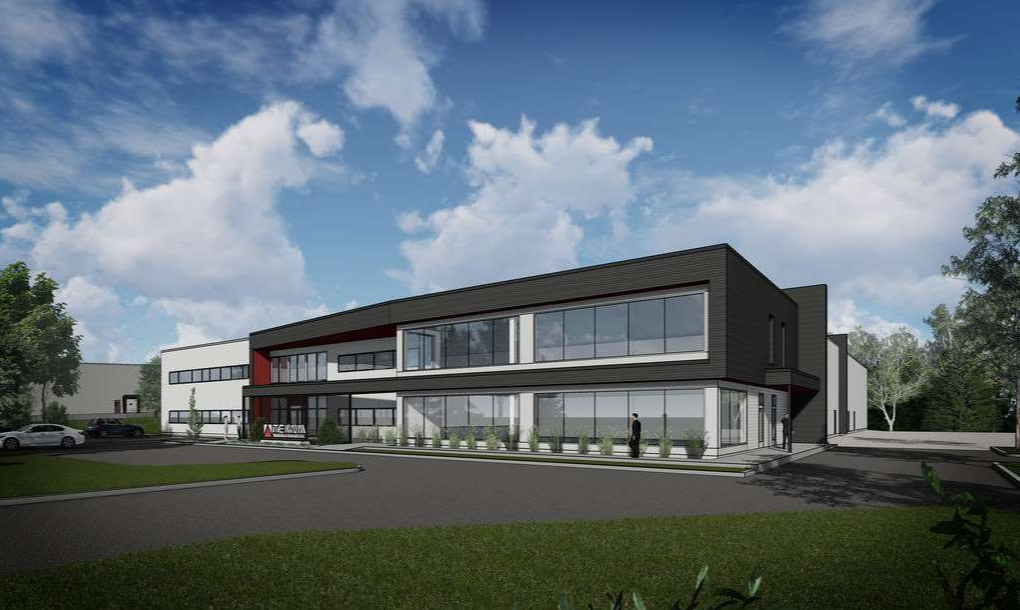Canadian plasma system and material developer Tekna (Tekna Holding AS) has won a patent litigation case against Advanced Powders & Coatings Inc. (AP&C), a Québec-based metal materials subsidiary of Colibrium Additive.
The intellectual property case related to the two companies’ competing patent rights for titanium powder production in Canada.
In particular, AP&C alleged that Tekna’s production of titanium alloy powders infringed on its Canadian Patent 3,003,502 (’502 Patent) and Canadian Patent 3,051,236 (’236 Patent). Both are titled “Metal powder atomization manufacturing processes”.
Ultimately, the Federal Court of Canada has ruled in favor of Tekna, judging that the firm does not infringe these AP&C patents.
The 244-page ruling concluded that AP&C’s ’502 Patent is, and has always been, invalid and void. ’236 Patent was also found to be invalid, except for some select claims that are not infringed by Tekna. Therefore, Tekna has successfully confirmed its ability to manufacture titanium powder in Canada.
“We are thrilled with this outcome, as it solidifies Tekna’s market position and showcases the company’s unwavering dedication to excellence and innovation,” commented Dag Teigland, Chair of the Board of Tekna Holding ASA.
“This ruling motivates us to continue pushing the boundaries in additive manufacturing, reinforcing our leadership and defending our integrity as a world-class provider of materials for the industry.”

Tekna defeats AP&C in patent dispute
Most of AP&C’s ’502 and ’236 Patents relate to the process of manufacturing metal powders through gas atomization. In this process, a metal source is melted and subjected to a high-velocity flow of gas that converts the melted metal into liquid droplets. These droplets then cool and solidify as solid powder particles.
Tekna first initiated the litigation in 2019, seeking a declaration that the ’502 Patent was invalid and not infringed by its powder production processes. This was countered by AP&C, which claimed Tekna was infringing the patent. Claims of infringement and invalidity for the ’236 Patent were also added to the case after it was issued in 2020.
Previously, two other patents owned by AP&C and three additional Tekna patents were involved in the case. However, these issues have since been resolved.
In the final ruling Nicholas McHaffie, the judge overseeing the case, concluded that the ’502 Patent is invalid and not infringed by Tekna. The majority of ’236 Patent’s claims were also found to be invalid, with none of its claims infringed by the company.
Tekna’s CEO, Luc Dionne, called the company’s victory a testament to its “resilience and relentless pursuit of innovation.” He added that the court’s ruling validates Tekna’s position in the market and secures its commercial freedom.
“It further strengthens our reputation as a trusted supplier, ensuring we can continue delivering our flagship product without legal hindrance,” stated Dionne. “Titanium powder accounts for an important percentage of Tekna’s additive materials revenues today, and will be a vital part of our continued growth going forward.”

3D printing patent disputes
The past few years have seen several contentions over 3D printing patent infringements. 3D printer manufacturer Markforged was recently ordered to pay Continuous Composites $17.34 million as part of a 3D printing patent-infringement lawsuit which began in 2021.
A federal jury found that Markforged’s Onyx Pro, Mark Two, X5, X7, X7 Field Edition, and FX20 3D printers infringe Continuous Composites’ US Patent ‘11,173,660.’ The patent covers the method and apparatus for continuous composite 3D printing, outlining the process for simultaneously extruding two or more materials as a composite. This is central to Continuous Composites Continuous Fiber 3D printing (CF3D) technology.
Following the verdict, Markforged’s share price fell from $0.74 on April 11 2024, to a low of $0.65 on April 12 2024.
Elsewhere, it was announced last year Torbjørn Ludvigsen had succeeded in his legal challenge against the US Department of Energy’s (DoE) Oak Ridge National Laboratory’s (ORNL) ‘SkyBAAM’ 3D printing patent.
Ludvigsen first publicized the HangPrinter in 2014. This open-source FFF 3D printer is a delta-style system that operates without a frame. ORNL’s patent application for its Sky Big Area Additive Manufacturing or ‘SkyBAAM’ technology was approved in January 2022. Open-source advocates including Dr. Joshua Pearce and RepRap Founder Dr. Adrian Bowyer criticized this decision, highlighting SkyBAAM’s similarity with the HangPrinter.
Consequently, Ludvigsen challenged the ORNL’s patent through an ex parte reexamination request sent to the US Patent and Trademark Office (USPTO). This challenge was subsequently upheld, forcing the ORNL to change the original claims made in its ‘SkyBAAM.’ The new claims are much more vague and do not cover those of the existing HangPrinters.
Register now for AMAA 2024 to hear insights from industry experts on additive manufacturing in aerospace, space, and defense.
Want to help select the winners of the 2024 3D Printing Industry Awards? Join the Expert Committee today.
What does the future of 3D printing hold?
What near-term 3D printing trends have been highlighted by industry experts?
Subscribe to the 3D Printing Industry newsletter to keep up to date with the latest 3D printing news.
You can also follow us on Twitter, like our Facebook page, and subscribe to the 3D Printing Industry Youtube channel to access more exclusive content.
Featured image shows the Tenka powder production plant. Photo via Tekna.

